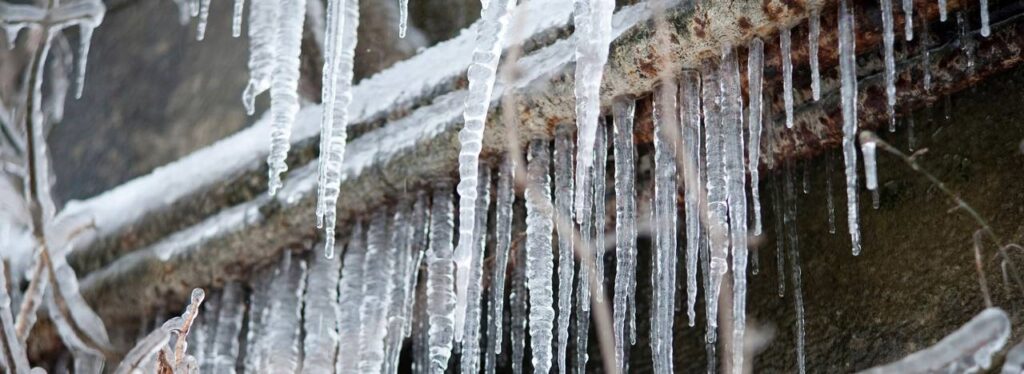Protecting Against Frozen Plumbing in Winter: Key Tips
Protecting Against Frozen Plumbing in Winter: Key Tips
Blog Article
Have you been trying to locate critical info around Prevent Frozen Pipes ?

Winter can ruin your pipes, specifically by freezing pipelines. Here's how to prevent it from happening and what to do if it does.
Introduction
As temperatures decline, the threat of icy pipelines boosts, potentially resulting in costly repairs and water damages. Recognizing exactly how to prevent icy pipelines is important for property owners in cold climates.
Recognizing Frozen Pipes
What creates pipes to ice up?
Pipes ice up when exposed to temperature levels below 32 ° F (0 ° C) for expanded periods. As water inside the pipelines freezes, it broadens, taxing the pipe wall surfaces and possibly triggering them to rupture.
Risks and damages
Frozen pipes can lead to water supply disruptions, building damages, and pricey repair work. Burst pipes can flooding homes and create extensive structural damage.
Signs of Frozen Water Lines
Determining icy pipelines early can stop them from breaking.
Just how to recognize icy pipelines
Seek lowered water circulation from faucets, unusual smells or sounds from pipelines, and visible frost on exposed pipes.
Avoidance Tips
Protecting susceptible pipes
Cover pipelines in insulation sleeves or utilize heat tape to shield them from freezing temperature levels. Focus on pipes in unheated or exterior locations of the home.
Heating techniques
Maintain interior rooms effectively heated, specifically areas with pipes. Open closet doors to allow warm air to flow around pipes under sinks.
Shielding Outdoor Pipes
Garden hoses and outside taps
Disconnect and drain pipes yard hose pipes before winter months. Install frost-proof spigots or cover outside taps with shielded caps.
What to Do If Your Pipes Freeze
Immediate actions to take
If you think frozen pipelines, maintain taps open up to soothe stress as the ice thaws. Make use of a hairdryer or towels soaked in hot water to thaw pipelines gradually.
Long-Term Solutions
Architectural changes
Take into consideration rerouting pipelines away from outside walls or unheated areas. Add additional insulation to attics, cellars, and crawl spaces.
Updating insulation
Purchase top notch insulation for pipes, attics, and wall surfaces. Correct insulation assists maintain regular temperatures and reduces the threat of frozen pipelines.
Final thought
Preventing icy pipes calls for proactive actions and quick feedbacks. By comprehending the reasons, signs, and safety nets, homeowners can secure their pipes during cold weather.
Helpful Tips to Prevent Frozen Pipes this Winter
UNDERSTANDING THE BASICS: WHY PIPES FREEZE AND WHY IT’S A PROBLEM
Water freezing inside pipes is common during the winter months, but understanding why pipes freeze, and the potential problems it can cause is crucial in preventing such incidents. This section will delve into the basics of why pipes freeze and the associated problems that may arise.
THE SCIENCE BEHIND FROZEN PIPES
When water reaches freezing temperatures, it undergoes a physical transformation and solidifies into ice. This expansion of water as it freezes is the primary reason pipes can burst. As the water inside the pipe freezes, it expands, creating immense pressure on the walls. If the pressure becomes too great, the pipe can crack or rupture, leading to leaks and water damage.
FACTORS THAT CONTRIBUTE TO PIPE FREEZING
Low Temperatures: Extremely cold weather, especially below freezing, increases the risk of pipes freezing. Uninsulated or Poorly Insulated Pipes: Pipes located in unheated areas, such as basements, crawl spaces, or attics, are more prone to freezing. Insufficient insulation or lack of insulation altogether exacerbates the problem. Exterior Wall Exposure: Pipes running along exterior walls are susceptible to freezing as they encounter colder temperatures outside. Lack of Heating or Temperature Regulation: Inadequate heating or inconsistent temperature control in your home can contribute to frozen pipes. PROBLEMS CAUSED BY FROZEN PIPES
- Pipe Bursting: As mentioned earlier, the expansion of water as it freezes can cause pipes to burst, resulting in significant water damage.
- Water Damage: When pipes burst, it can lead to flooding and water damage to your property, including walls, ceilings, flooring, and personal belongings.
- Structural Damage: Prolonged exposure to water from burst pipes can compromise the structural integrity of your home, leading to costly repairs.
- Mold and Mildew Growth: Excess moisture from water damage can create a favorable environment for mold and mildew growth, posing health risks to occupants.
- Disrupted Water Supply: Frozen pipes can also result in a complete or partial loss of water supply until the issue is resolved.
WHY CERTAIN PIPES ARE MORE PRONE TO FREEZING
- Location: Pipes located in unheated or poorly insulated areas, such as basements, crawl spaces, attics, or exterior walls, are at higher risk of freezing.
- Exterior Pipes: Outdoor pipes, such as those used for irrigation or exposed plumbing, are particularly vulnerable to freezing as they are directly exposed to the elements.
- Supply Lines: Pipes that carry water from the main water supply into your home, including the main water line, are critical to protect as freezing in these lines can affect your entire plumbing system.
- Underground Pipes: Pipes buried underground, such as those connected to sprinkler systems or outdoor faucets, can be susceptible to freezing if not properly insulated.
https://busybusy.com/blog/helpful-tips-to-prevent-frozen-pipes-this-winter/

I am just very eager about Helpful Tips to Prevent Frozen Pipes this Winter and I'm hoping you enjoyed the new entry. Feel free to pause to promote this blog posting if you liked it. I recognize the value of your readership.
Maintenance Sign-Up Report this page